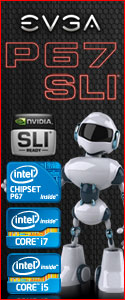Test Bed
- EVGA P67 FTW Motherboard
- i7 2600K CPU @ 4.5 Ghz
- G.SKill 8 Gb DDR3 1866 MHz F3-14900CL9D-8GBXL
- EVGA Superclock CPU Cooler
- PowerColor PCS+ HD7850 Video Card
- Corsair HX1050 Power Supply
Here is a screen shot with the AHCI driver information used for testing. It’s also worth noting that the OCZ Vertex 4 arrived with the latest firmware, 1.4.1.3.

Some of you may be interested in the Windows Experience Index score the Vertex 4 achieves, it scored a 7.9 which is the highest available.

One of the things that make SSDs in general so appealing, is the reduced boot up time. Using boottime.exe produces a boot time of just over six seconds, that’s pretty darn fast I’d say!
As we move into the benchmarking phase, it’s important to note that a completely updated copy of Windows 7 X64 has been installed on the Vertex 4, along with a few productivity applications. I typically load a fare amount of software before testing a SSD, doing this allows us to obtain scores from a real world environment.
ATTO
ATTO measures your storage systems performance with various transfer sizes, and test lengths for reads and writes. The 1K and 4K write tests show the Vertex 4 pounding out some good numbers, it fell behind the 240GB drives in the other write tests, but led the way when compare to the other 128GB drives in the comparison. The 1K and 4K read tests were not kind to the Vertex 4, but once the lengths got larger it performed on par with the other drives in the comparison.
 |
 |
AS SSD
AS SSD is a very popular benchmark to measure the performance of a SSD. It tests sequential read/write, 4K read/write, and 4K-64Thrd read/write performance. Additionally, it measures read/write access times and gives the entire test result a score.
It’s pretty apparent so far that the Vertex 4 loves 4K testing, and swept the field in those test result. The Vertex 4 came out on top of all the write tests, and by a substantial margin. The read tests had the Vertex 4 coming in the top spot for 128GB drives, but fell behind the 240GB+ drives. The access time results are a mixed bag with the write access time blowing every other drive away, but the read access time came in at the bottom. The scoring system AS SSD uses must really like what it saw in the Vertex 4, giving it the top spot in all three categories.
 |
 |
 |
 |
CrystalDiskMark
CrystalDiskMark tests read/write random data, 0-Fill data, and 1-Fill data. Within each of these test are sequential, 512K, 4K, and 4K QD32 results. The Vertex 4 continued its 4K dominance across all the 4K tests. The read tests were right in line with the other drives in the comparison, and the random write tests did the same, while the 0-fill and 1-fill write tests fell well behind some of the 240GB+ drives.
 |
 |
 |
 |
 |
 |
IOMeter
IOMeter is an oldie but goodie for testing 4K and 2MB transfer speeds, as well as IOPS for both. The 4K IOPS testing shows the Vertex 4 outperforming the other 128GB drives and right on par with all the other comparison drives except for the Vertex 3 Max IOPS. The 4K transfer speeds did not fare well with the write score coming out below all others, except for the Kingston SSDNow and the Vertex 2. The 4K read was not very impressive either, only managing to beat the SSDNow V200 and the Crucial M4.
 |
 |
The IOMeter 2MB IOPS test again shows the Vertex 4 read IOPS falling behind older OCZ SSDs using the SandForce controller except for the Vertex 2. The rite IOPS scored pretty well but still slightly behind both vertex 3 drives and the HyperX 3K SSD. The 2MB transfer speed testing revealed similar pattern, losing out to both Vertex 3 drives and the HyperX 3K SSD.
 |
 |


 Posted in
Posted in 





